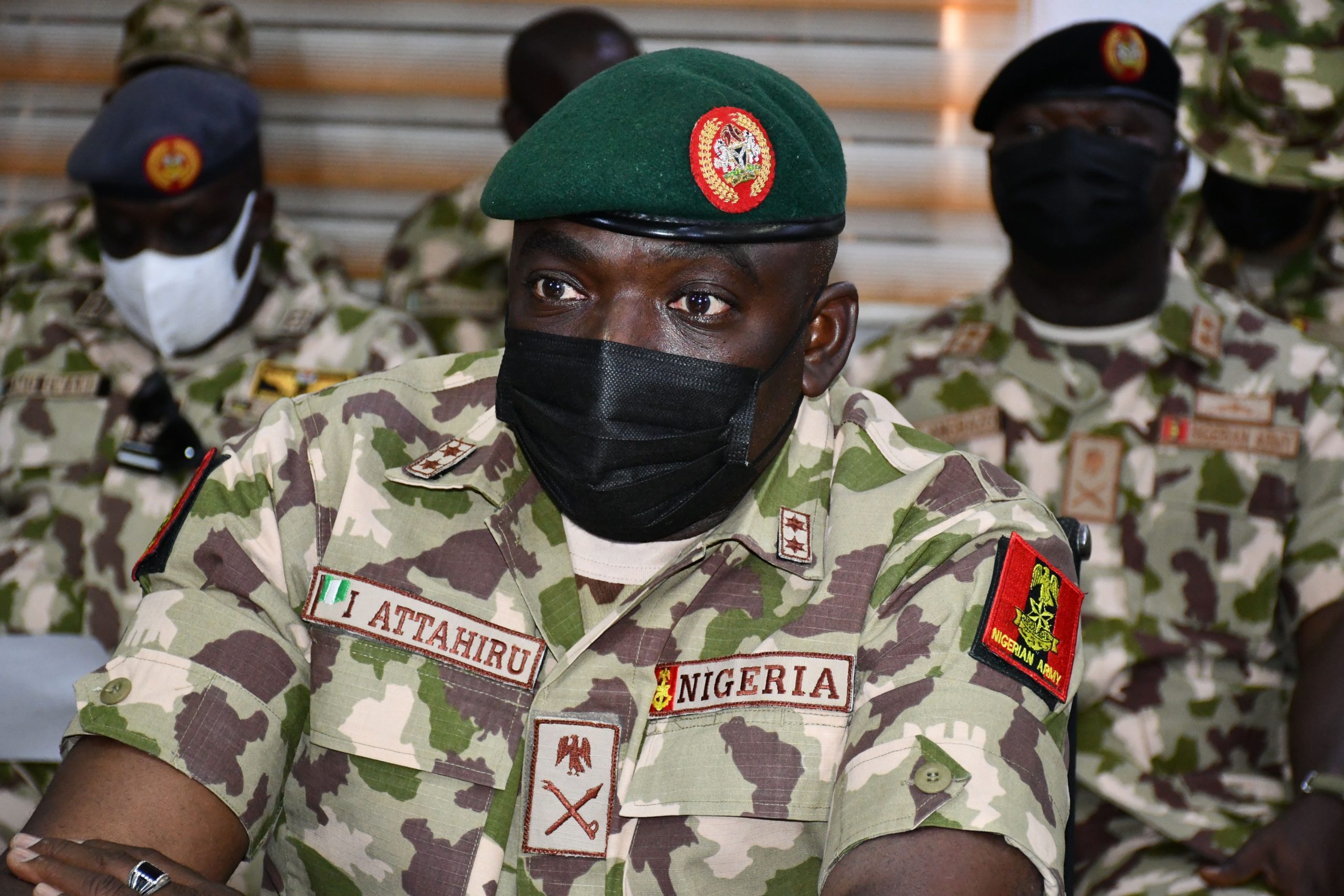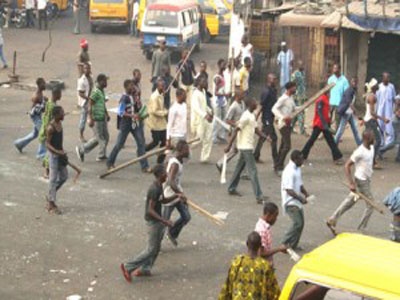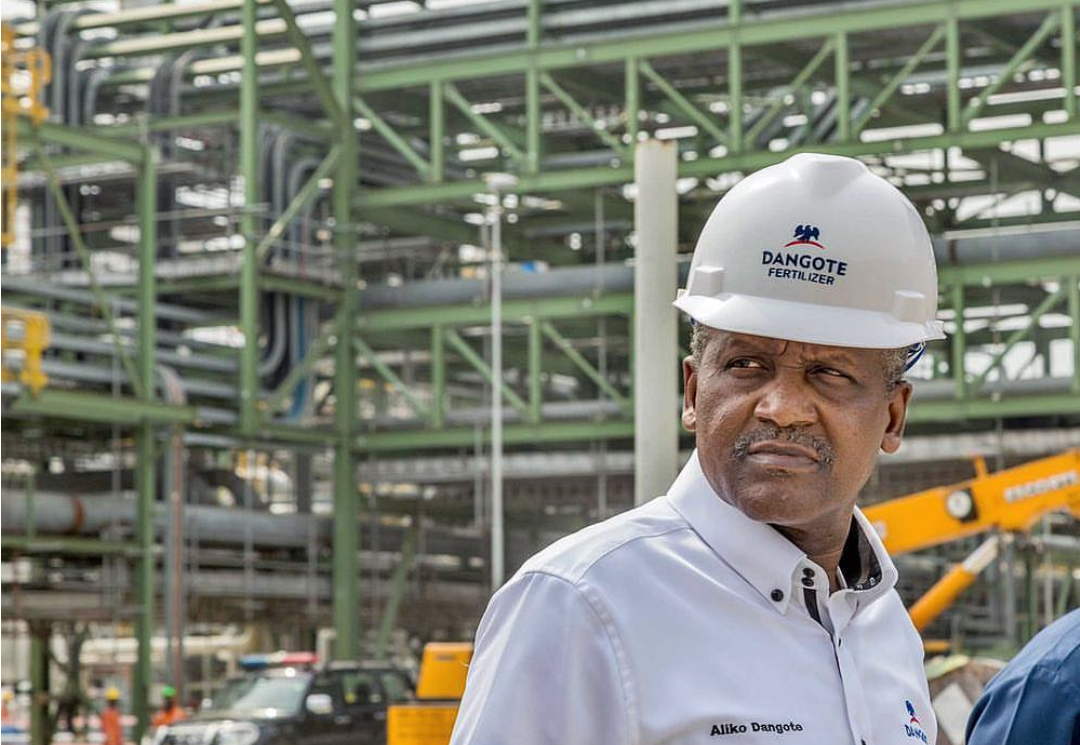By Eric Elezuo
Barely 48 hours after news filtered in that the dreaded Boko Haram commander, Abubakar Shekau, has been killed by ISWAP, it was reported that less than five months in office Chief of Army Staff, Lt. General Ibrahim Attahiru, had died in plane crash while flying with 10 others from Abuja to Kaduna. The plane, a Nigerian Air Force Beechcraft B300 King Air 350i, crashed shortly before landing near the Kaduna Airport on May 21, 2021.
The ill-fated aircraft killed all 11 military officers onboard, including Lt. Gen. Ibrahim Attahiru. The officers were on their way to the passing out parade of regular recruits slated for the following day. Attahiru had only assumed office as the Chief of Army Staff, following his appointment by President Muhammadu Buhari on January 26 alongside the Chief of Defence Staff, Lucky Irabor; Chief of Naval Staff, Gambo Awwal, and Chief of Air Staff, Isiaka Amao.
Exactly one after the ill-fated trip, the main cause of the incident remains unknown though unconfirmed sources have blamed the accident to bad weather in addition to preliminary reports submitted to the Chief of Air Staff three months after the accident. The details of the preliminary as contained in a statement jointly signed by Air Force Director of Public Relations and Information, Air Commodore Edward Gabkwet and the General Manager, Public Affairs, AIB, Tunji Oketunbi, stated that the preliminary report contained a total of 27 initial findings and eight safety recommendations for immediate implementation.
Preliminary reports are “only contain details of the initial facts, discussions and findings surrounding the occurrences, which include information gathered from witness statements, flight recorders, Health and Usage Monitoring System Data, Flight Data Monitoring data, and preliminary inspection of the accident sites and the wreckages,” Oketunbi said.
Nothing has been heard of General Attahiru and his ill-fated flight of May 21, 2021 ever since, even as only few weeks ago, precisely on April 26, 2022, the AIB released preliminary reports on four air crashes.
The reports released were those of the crashes involving a United Nigeria Airlines Limited aircraft on November 17, 2021; Max Air aircraft on November 22, 2021; Air Peace aircraft on November 22, 2021 and Nigeria Police aircraft on January 26, 2022. No one can tell if there is a foul play as regards the crash that killed Attahiru.
A Punch enquiry on why the crash that killed Attahiru was excluded from the reports released by the AIB, revealed that only the military could make the report public.
“We have submitted the preliminary report to the Nigerian Air Force and we presented it openly to them, although the full report is not in the public domain. You know it is not a civil accident. It is only the military that can make it public or give us the go-ahead to do so. To make it public is not part of our agreement; they invited us to investigate, we have done it and handed it over to them.”
He added that the military is yet to give the Bureau the permission to conclude the investigation as regards the accident of May 21, 2021
“The outcome of final report depends on NAF if they give us the necessary things we need,” he added.
Attahiru’s plane crash is one of the five crashes the military has suffered in the last one year and half, and the causes have remained a mystery.
ATTAHIRU’S BACKGROUND
Ibrahim Attahiru was born in Doka, Kaduna North LGA on August 10, 1966, attended the Nigerian Defence Academy (NDA), before commencing the cadet training in 1984.
He was commissioned as an infantry officer in the rank of a second-lieutenant with the Nigerian Army in December 1986.
Rising through the ranks, Attahiru commanded various military formations and operations which include 146 battalion (operation Harmony IV) in the Bakassi Peninsula, 13 Brigade (Operation Pulo Shield), 82 division Nigerian Army.
He was also Theatre Commander of Operation Lafiya Dole.
At different times, he served as Deputy Director Military Secretary 2 at the army headquarters, and Director of Army Public Relations.
The slain combatant undertook leadership and security policy courses at the Kennedy School of Government, Harvard University, USA; Graduate School of Media and Communication, Agha Khan University, Kenya; Bournemouth University Disaster Management Center and the Geneva Centre for Security Policy.
He also had a Master’s degree in Strategic Management and Policy Studies from the NDA and Masters in Human Resources Management and Development from Salford University in the United Kingdom.
The 21st chief of army staff will go down in history as the shortest serving chief as at today.
Though his tenure was short, cut down by unfortunate mishap, Attahiru no doubt left his footprints in the sands of time, achieving notable landmarks within four months of stewardship.
It would be recalled that prior to his assumption of office, it was relatively obvious that many officers and soldiers had lost interest in the war against Boko Haram under his predecessor, Tukur Buratai, whose call for replacement was re-echoing across platform. On assumption, he quickly effected a change in formations and began winning the interest of his officers and soldiers as well as winning battles.
“I and my colleagues took over command of our respective services at a very critical period due to daunting security challenges,” he had said.
“In line with President Muhammadu Buhari’s directives and my intent to rebuild the Nigerian army into a formidable force, I conceived the vision of having ‘A Nigerian army that is repositioned to professionally defeat all adversaries in a joint environment.’”
He also introduced the philosophy of readiness, capacity, continuous leadership development and duty to control into the army.
”As I speak, we will soon be receiving combat enablers that would enhance and boost our operations. Concerted effort is also being made to eliminate the threat of improvised explosives devices which has been a major impediment to troops and operations in operation Lafiya Dole,” he had said.
In his attitude of never say never, Attahiru gave the troops a 48-hour ultimatum to recapture all lost areas to insurgents while assuring them of improved equipment.
“It is now high time we get back and fight through and support our forces ahead of you.
“Areas around Marte, Chikingudo, Kirenowa, up to Kirta, Wulgo must be cleared in the next 48 hours. Be rest assured of all the support required in this very onerous task,” he had said.
It is on record that the listed communities were recaptured by the army at the expiration of the ultimatum.
During his appearances in the National Assembly, Attahiru was bold to call on a definite probe on the disputed arm purchase, and let those who had held the country to ransom face the music.
He was strict, but very accommodating, prompting a former Governor of Lagos to say the following of him at his death: “COAS Attahiru had a most distinguished career. The army and the nation will miss his excellent character and fine leadership at this moment when we are fighting terrorism or banditry in many parts of the nation.”
Soyinka, Others Remember Late COAS Attahiru
The General Ibrahim Attahiru Foundation will on Saturday hold a memorial in Attahiru’s honour, one year after his demise.
The memorial holding in Abuja is expected to the attended by Nobel laureate, Prof Wole Soyinka; the Emir of Bichi, Kano Emirate, Alhaji Nasir Ado Bayero; and environmentalist, Dr Newton Jibunoh, among other prominent citizens.
The Programme Coordinator, General Ibrahim Attahiru Foundation, Dr Titus Orngu, who disclosed this in a statement on Friday, said Soyinka will deliver a short tribute titled, “To All, Who Give Their All for All.”
“Apart from the launch of GIAF, there will be the premiere of Ibrahim Attahiru, a Soldier’s Soldier, a documentary on the life and times of the late Army chief, produced and directed by Adeola Osunkojo.
“The foundation will also present Attahiru’s posthumous biography, ‘The man, the soldier, the patriot, biography of Lt. Gen. Ibrahim,’ written by Niran Adedokun, at the event,” Orngu said.
The late COAS is survived by his wife, Fati Attahiru, and they are blessed with children.

 News6 years ago
News6 years ago
 Featured6 years ago
Featured6 years ago
 Boss Picks6 years ago
Boss Picks6 years ago
 Headline6 years ago
Headline6 years ago
 Headline6 years ago
Headline6 years ago
 Headline6 years ago
Headline6 years ago
 Headline6 years ago
Headline6 years ago
 Headline6 years ago
Headline6 years ago













